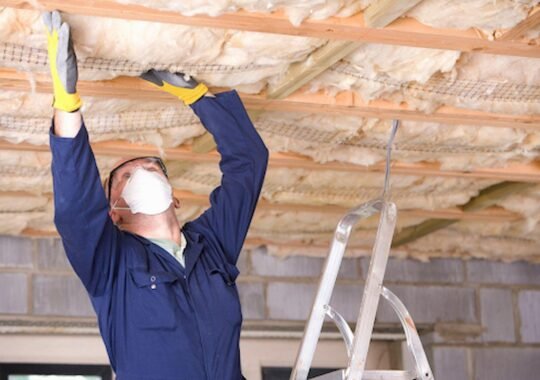Few things are more frustrating than turning on the tap and finding no hot water. Whether it’s the middle of winter or after a long day at work, a reliable hot water system is essential for comfort and convenience. But what happens when it stops working, or worse, becomes a safety risk? This is where electricians step in—not just to fix faults, but to ensure your hot water system runs efficiently, safely, and in line with modern standards.
This article examines the crucial role electricians play in the installation, repair, and maintenance of hot water systems. From identifying potential problems to ensuring energy efficiency, they are the unsung heroes behind many household comforts.
Understanding Hot Water Systems
Hot water systems are appliances designed to heat water for domestic or commercial use. These systems vary in size, function, and energy source. The three most common types are
- Electric hot water systems
- Gas hot water systems
- Solar hot water systems
Each has its benefits and limitations. However, regardless of the type, professional electrical expertise is often required, especially when it involves wiring, thermostats, safety switches, and compliance with local electrical codes.
The Electrician’s Role in Hot Water System Repairs
Most people think of plumbers when there’s an issue with their hot water. However, many problems are electrical. This includes:
- Malfunctioning thermostats
- Faulty heating elements
- Tripped circuit breakers
- Broken timers or controllers
Electricians are trained to diagnose and resolve these electrical faults efficiently. They use specialised tools to test components, trace wiring issues, and restore the system safely.
Why Electrical Work Matters in Hot Water Systems
Safety is the main reason to call a qualified electrician when dealing with a hot water issue. Here’s why:
- Water and electricity are a dangerous mix. Only a trained professional should work on systems that combine both.
- Incorrect wiring can pose a fire hazard, especially in older systems where insulation may have deteriorated.
- Compliance with regulations is critical. Electrical installations for hot water systems must follow national standards to avoid fines or insurance issues.
By involving an electrician early on, you ensure that the system is not only repaired correctly but also future-proofed against further complications.
Installation: Why It’s Not a DIY Task
When it comes to new or replacement hot water systems, professional installation is a non-negotiable requirement. The process requires more than just connecting a few pipes and flipping a switch. Electricians ensure:
- The system matches the home’s electrical capacity
- All safety switches are installed and tested
- Circuit breakers and timers are configured correctly
- Energy-efficient practices are applied to minimise power usage
In many regions, it is also illegal to carry out electrical installation work without proper certification. DIY attempts can void warranties or lead to severe penalties.
Hot Water System Upgrades
Modern homes are shifting towards energy-efficient technologies. As such, older hot water systems may no longer meet performance standards or consumer needs. Electricians can advise on and upgrade components such as:
- Smart thermostats
- Energy-efficient heating elements
- Off-peak electricity timers
- Solar-compatible electrical systems
In the middle of your decision-making, choosing the right system becomes easier when guided by a professional who understands both electrical and efficiency requirements. It’s not just about hot water—it’s about sustainable, reliable living.
Routine Maintenance and Inspections
Prevention is better than a cure. Electricians recommend periodic checks to avoid breakdowns, especially before winter. Regular inspections help:
- Identify and replace worn-out components
- Test electrical connections for corrosion or looseness
- Check for leakage that may affect electrical parts
- Update safety switches and other control systems
A simple maintenance check can extend the system’s life and improve its performance. It also gives homeowners peace of mind knowing their system is safe and compliant.
Signs You Need an Electrician for Your Hot Water System
It’s easy to overlook early warning signs, but knowing what to watch for can save time and money. Contact an electrician if you notice:
- The water is not heating properly or taking too long
- Frequent tripping of the hot water circuit
- Humming or buzzing from the tank area
- Water temperature that fluctuates or overheats
- Burn marks near the wiring panel or switch
These issues often indicate electrical problems that require immediate attention to prevent further damage or risk.
The Connection Between Hot Water Systems and Energy Efficiency
Electrical faults in hot water systems can result in higher energy bills. For example, a faulty thermostat may cause the system to continuously overheat water. Similarly, worn-out heating elements can take longer to warm up, resulting in increased power consumption.
A professional inspection can uncover hidden inefficiencies. Electricians can then make recommendations that save both energy and cost in the long run. They can also assess if your system qualifies for upgrades under local energy-saving schemes.
In many homes, the hot water system is the second-largest electricity consumer. Keeping it efficient and functional is not just good maintenance—it’s a wise financial decision.
Hot Water Systems and Professional Installation
Amid any hot water-related decision—whether it involves repair, replacement, or upgrade—hot water systems require attention to electrical safety, durability, and compliance. This is where the importance of professional installation becomes clear.
Poor installation can result in recurring issues, higher bills, and safety hazards. By contrast, an electrician ensures the system is installed with the proper electrical infrastructure, tested under load, and documented for insurance and compliance purposes.
This isn’t just a service; it’s an investment in your property’s safety and value.
Final Thoughts
Hot water systems are a crucial part of modern living, yet often taken for granted—until something goes wrong. Whether it’s a flickering thermostat, a complete system breakdown, or a plan to upgrade, electricians are crucial to ensuring your system remains safe, efficient, and compliant with regulations.
From installation to repair and maintenance, their expertise spans far beyond wires and switches. They protect households from electrical hazards, improve energy efficiency, and help extend the life of essential home appliances.
Next time your hot water system acts up, don’t just think of pipes and tanks—think of the electricians ready to save the day.





